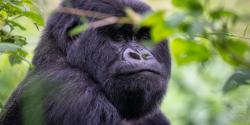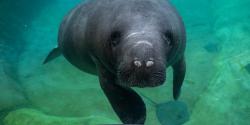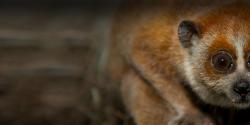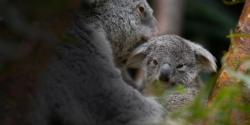Powell, OH – The Columbus Zoo and Aquarium is mourning the loss of beloved 13-year-old male Asian elephant, Beco. Despite the heroic efforts of his devoted Animal Care and Animal Health teams and the expertise of other zoo professionals and scientists across the country, Beco passed away today at approximately 11 a.m. from Elephant Endotheliotropic Herpesvirus (EEHV), a life-threatening virus affecting elephants living in the wild and in sanctuaries and zoos worldwide.
Beco is the second elephant to succumb to EEHV at the Columbus Zoo. Ganesh, a 7-year-old Indian elephant died in 2005.
During the morning hours of Thursday, June 16, his attentive care team noticed that Beco was uncharacteristically lethargic. Concerned, they quickly contacted the Animal Health team, who collected and sent Beco’s blood sample to the National Elephant Herpesvirus Laboratory at the Smithsonian’s National Zoo for analysis. The lab confirmed later that evening that Beco was positive for active EEHV.
The Zoo’s care team immediately began working around the clock to treat Beco’s illness. Treatments started with antiviral medications and fluids. He also received regular infusions of plasma, whole blood, and stem cells provided by an incredible support network of other zoo facilities throughout the United States.
Researchers have confirmed that elephants, like most mammals, can carry different herpesviruses throughout their lives and usually those viruses remain dormant and do not cause illness. In some elephants, including younger animals that have less immunities to disease, the virus grows and can create life-threating health risks. Elephants are most susceptible to EEHV from ages 1-8 years, though elephants in their teens have also died of the virus. Adult elephants are less susceptible to the virus because their immune system is more robust. Regardless of age, EEHV does not discriminate between zoo elephants and elephants in the wild. Whether it’s a calf at a zoo, or the young of a herd in the wilds of Asia, EEHV can strike without any known causes or reason.
Experts are also aware that the virus can progress rapidly, and early detection is critical. Because EEHV is particularly a threat to all young elephants, the Zoo’s care team proactively uses the latest EEHV detection methods and protocols to test the most vulnerable elephants in the herd weekly. Prior to the confirmed diagnosis on June 16, Beco’s most recent blood work was normal. Currently, there are no signs of EEHV in the other six members of the elephant herd, though the Zoo’s Animal Care and Animal Health teams continue to monitor them closely.
“The loss of any animal is hard, but losing a young, elephant is especially devastating. We are extremely grateful for the support we have received from our colleagues at other zoos, and the condolences from our community, who mourns with us. Even during these sad times, Columbus Zoo staff remains committed to the future of wildlife and we take some comfort knowing that valuable scientific data from Beco’s illness will be applied to helping to save the lives of other elephants,” said Tom Schmid, President and CEO of the Columbus Zoo.
“I am proud of the expertise, compassion, and devotion of our care teams, and the dedication they showed throughout this fight was nothing short of inspirational. And I am also thankful for our colleagues around the country who provided plasma, blood, expertise and support. They are true partners and friends of the Columbus Zoo,” he said.
Beco was born at the Columbus Zoo on March 27, 2009 to mother, Phoebe, and father, Coco. Weighing 303 pounds at birth, Beco who, after to a public vote, officially received his moniker that combined his parents’ names. Since then, he continued to fulfill a big role in the Zoo’s elephant herd with his spirited personality.
According to the International Union for Conservation of Nature (IUCN) Red List of Threatened Species,™ Asian elephants are listed as endangered in their native range across southern and southeastern Asia and are in decline due to various factors including habitat loss/degradation and poaching. Researchers estimate that there are fewer than 40,000 Asian elephants and less than 400,000 African elephants remaining worldwide.
The Columbus Zoo is a long-time supporter of several direct elephant conservation initiatives benefitting both African and Asian elephants, including annual donations to the International Elephant Foundation and several research projects and grants over the last 25 years. Many of these projects have focused on reducing human-elephant conflict and monitoring elephant populations in their native ranges.
Additionally, Columbus Zoo veterinary staff are directly involved in efforts to learn more about EEHV through participation in a national EEHV advisory group, which aims to prevent, diagnose and treat this virus. In fact, plans for the installation of an EEHV lab at the Columbus Zoo have already been underway, with the lab scheduled to open later this summer.
“This is a devastating and unpredictable virus, and we are heartbroken by this tremendous loss. There is some comfort in knowing that Beco's legacy will live on in what we learn from this experience, which will ultimately help save other elephants' lives. We are grateful for the support of our zoo colleagues across the country and the kindness of our community. We are mourning Beco's loss together and finding strength in leaning on one another," said Dr. Jan Ramer, SVP of Animal Care and Conservation.
###
About the Columbus Zoo and Aquarium
Home to more than 10,000 animals representing over 600 species worldwide, the Columbus Zoo and Aquarium leads and inspires by connecting people and wildlife. The Zoo complex is a recreational and education destination that includes the 22-acre Zoombezi Bay water park and 18-hole Safari Golf Club. The Columbus Zoo and Aquarium also manages The Wilds, a 10,000-acre conservation center and safari park located in southeastern Ohio. The Zoo is a regional attraction with global impact, annually contributing privately raised funds to support conservation projects worldwide. A 501(c)(3) nonprofit organization, the Columbus Zoo has earned Charity Navigator’s prestigious 4-star rating.









